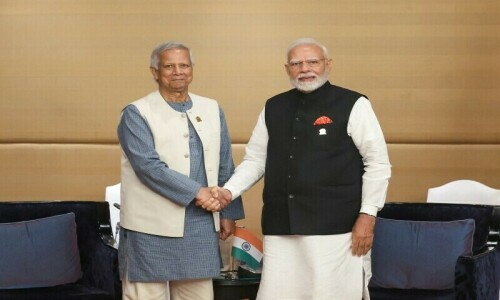AS society loses its ethical and moral foundations, the younger generations seem to be growing up in a vacuum. Yet, almost every Muslim house spends so much time and effort to teach the Quran, by rote, and the salat, to its children. If only these rituals could be accompanied with the core teachings of Islam we might stand a chance of raising better human beings.
Raising children properly is a sacred obligation for Muslims, but one that is sadly neglected by most. Islam considers children given to parents in trust, to be cared for physically, intellectually and spiritually. Parents must cater to their development needs in each of these three ways, regardless of whether the child is a girl or a boy. The Prophet (PBUH) has said; “Fear Allah and treat your children fairly” (Bukhari, 2447; Muslim, 1623).
Both sons and daughters must have the opportunity to be nourished well, given a good education, and exposed to an environment in which they can find and develop their creative niche. This also means that Muslim children should be taught Arabic so that they understand the Quran and the salat, and both worldly and religious education should proceed in parallel. They should be encouraged to ask questions, be curious and exposed to reasoning and logical ways of thinking so that they can understand their faith better.
Morals should be ingrained in a child’s personality.
Islamic morals and ethics should be ingrained in a child’s personality. The root of this lies in love, forbearance, politeness and caring for others. A child who is a true Muslim is the greatest blessing God can bestow upon one, both in this and the world hereafter. The Quran tells us of the spontaneous gratitude of Abraham, when he and his wife were granted children in old age; “Praise to Allah, who has granted to me in old age Ishmael and Isaac. Indeed, my Lord is the Hearer of supplication” (14:39).
The Quran entails Muslims to take great care of their children, wisely and with caution. It says; “Your wealth and your children are but a trial, and Allah has with Him a great reward” (64:15).
Children should grow up to understand their obligations, and the rights they must fulfil towards God, and towards their fellow human beings. The first is accomplished by a proper understanding and implementation of ibada’at, or worship of the one God, and the second through being respectful, caring, kind and supportive to parents, relatives, the elderly, the poor, travellers, orphans, the disadvantaged and all those who may be in need of help.
The first comes under huquq Allah, and the second is the huququl ibad. On the Day of Judgment, we will all be questioned on our performance against meeting our obligations in these areas, and how well we were able to train our children in the same.
Muslim children should be taught to differentiate between Islam, and the wrong concepts and practices of some Muslims. They are too easily led to believe in people such as ‘caliph’ Baghdadi and organisations such as the so-called Islamic State and Taliban. A society that sees no contradiction in praying five times a day, and supporting killing of Muslims and non-Muslims in the name of Islam raises generations as fodder for militant armies.
Children must be taught the necessary skills to earn their livelihoods through halal means. They must know what is forbidden, why and what is acceptable. It is not enough to ask them to accept. It is important to explain the reasons and let them arrive at their own conclusions.
Muslim children should be exposed to Muslim role models. They should read authentic biographies of the Prophet, as well as those of the Companions and other Muslim personalities, scholars and scientists. They should read about other prophets — Jesus, Moses, Noah, Solomon, David, Joseph, Lut, amongst others — mentioned in the Quran.
Children react to their environment very quickly. If they live with noise, anger and intolerance, they will develop these traits more quickly than adults. Parents must ensure that children are provided an anger- and violence-free environment, a loving atmosphere, where mistakes can be talked about but not punished. However, controlled discipline is also necessary.
The mother and father should be seen to be a united duo to the children, and be loving and affectionate. The Prophet was known for his love towards children. Once he kissed his grandson while Al-Aqra ibn Habis Al-Tamim was sitting with him. Al-Aqra said, “I have 10 children and have never kissed them.” The Prophet said, “Whoever is not merciful to others will not be treated mercifully” (Bukhari). He often shortened prayers whenever a child started crying (Bukhari).
When we die, no one can come to our rescue, except the prayers of a child who is pious and God-fearing.
The writer is a freelance contributor with an interest in religion.
Published in Dawn, October 24th, 2014












































